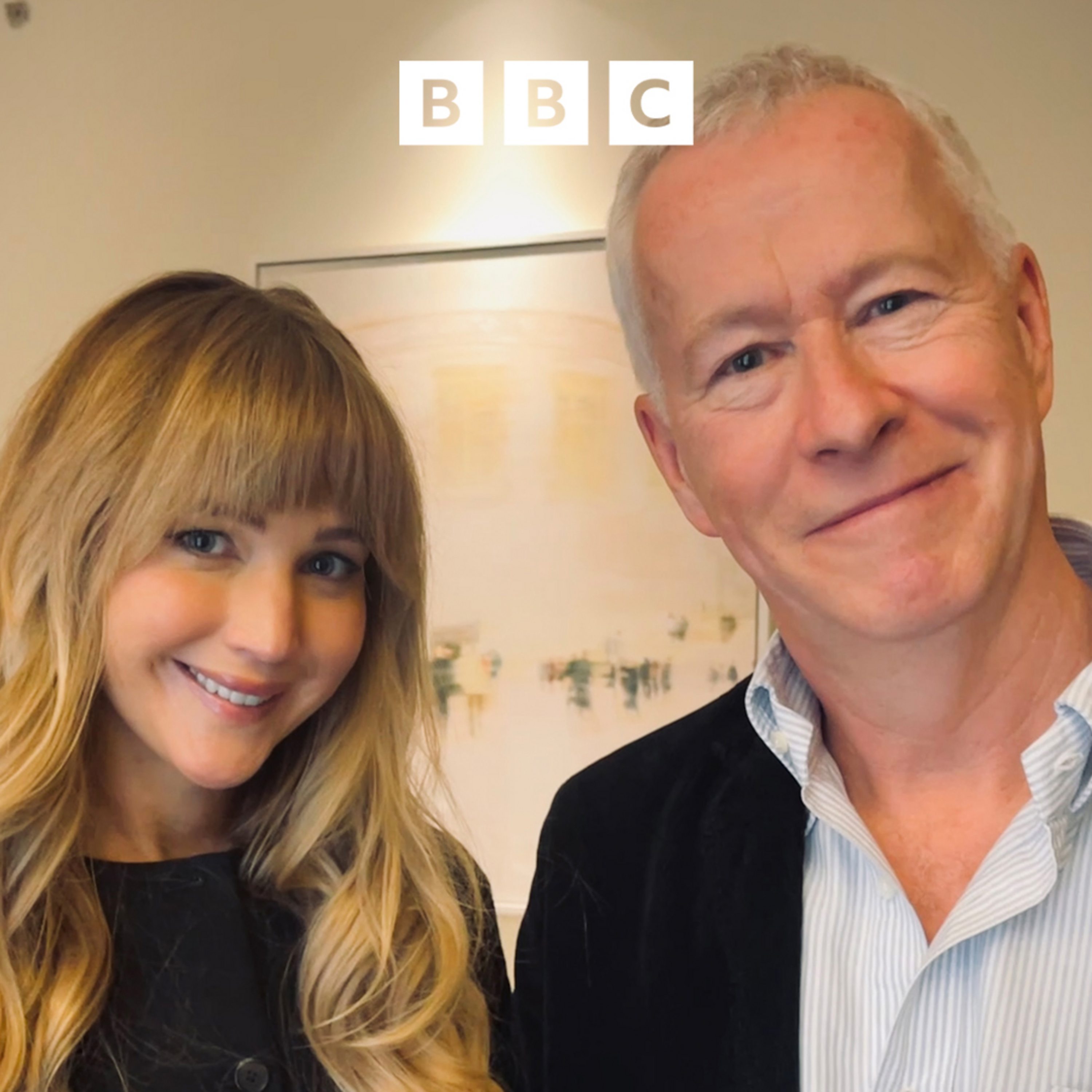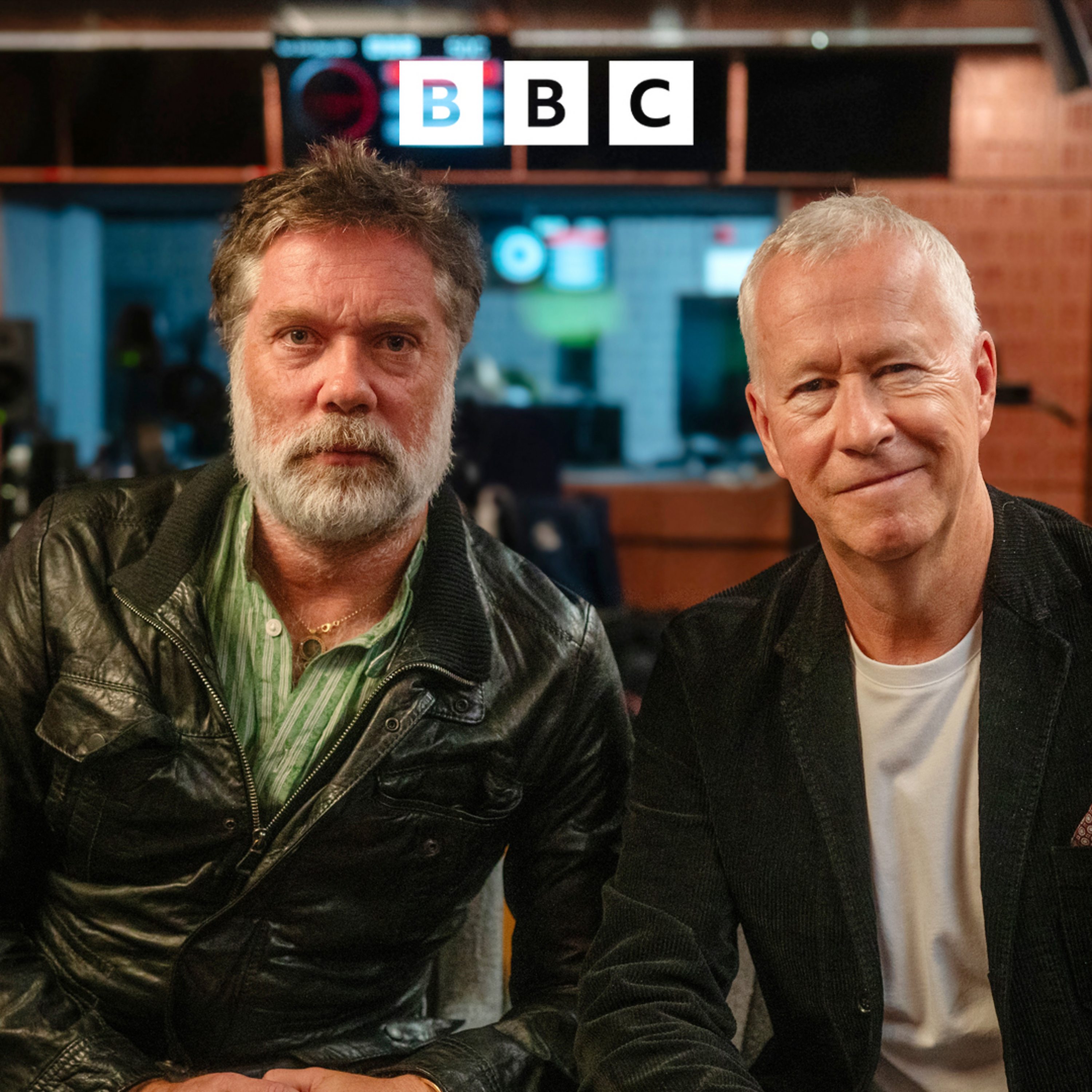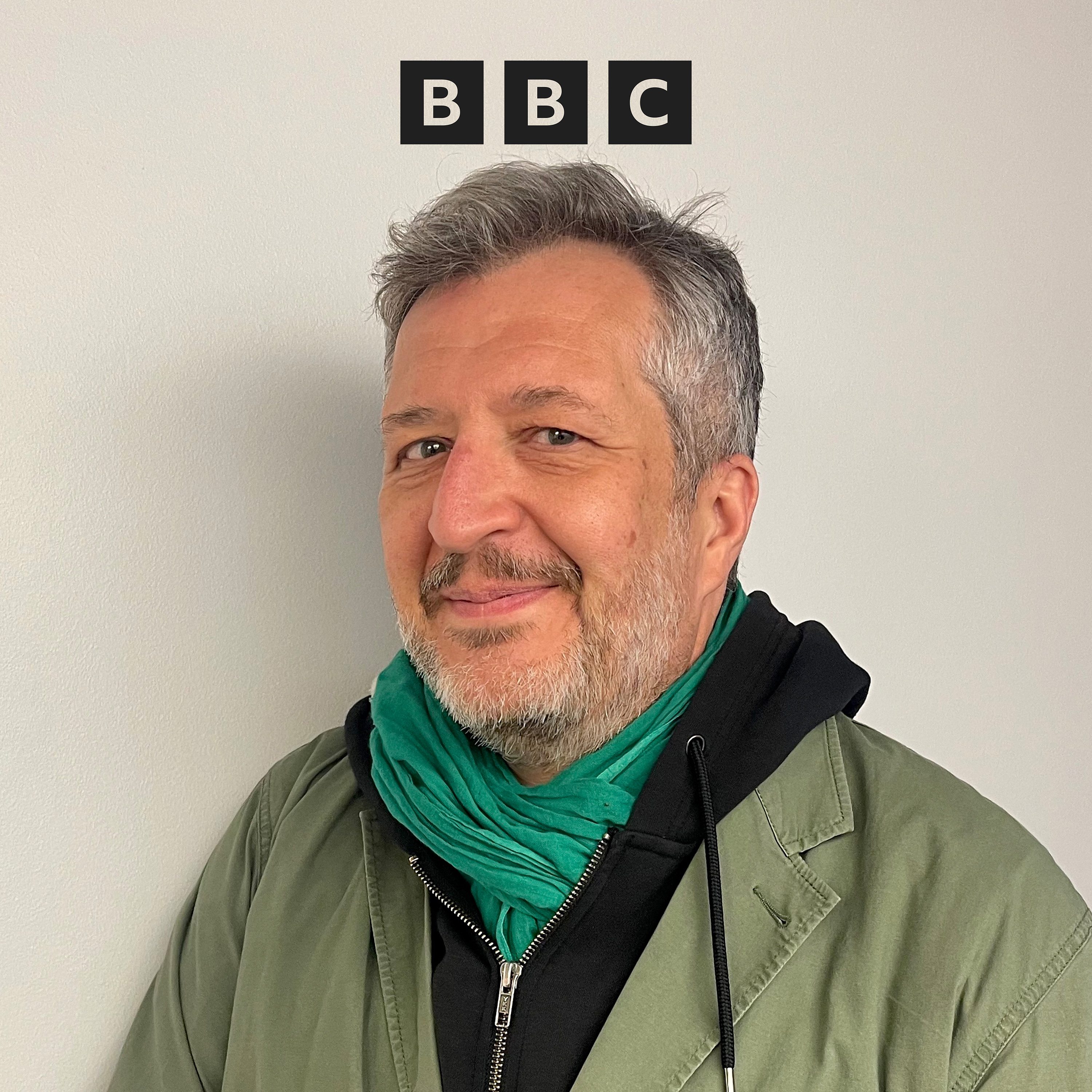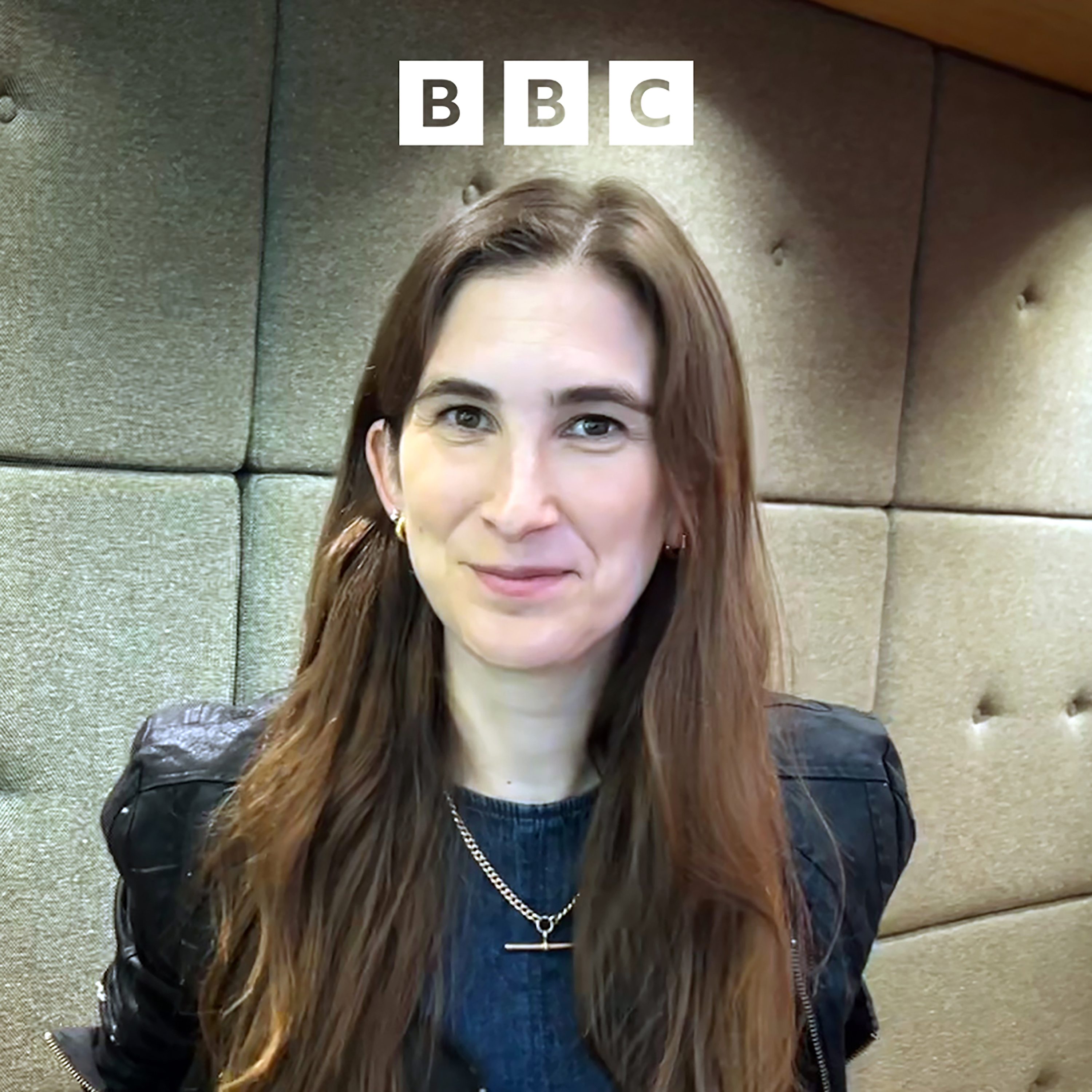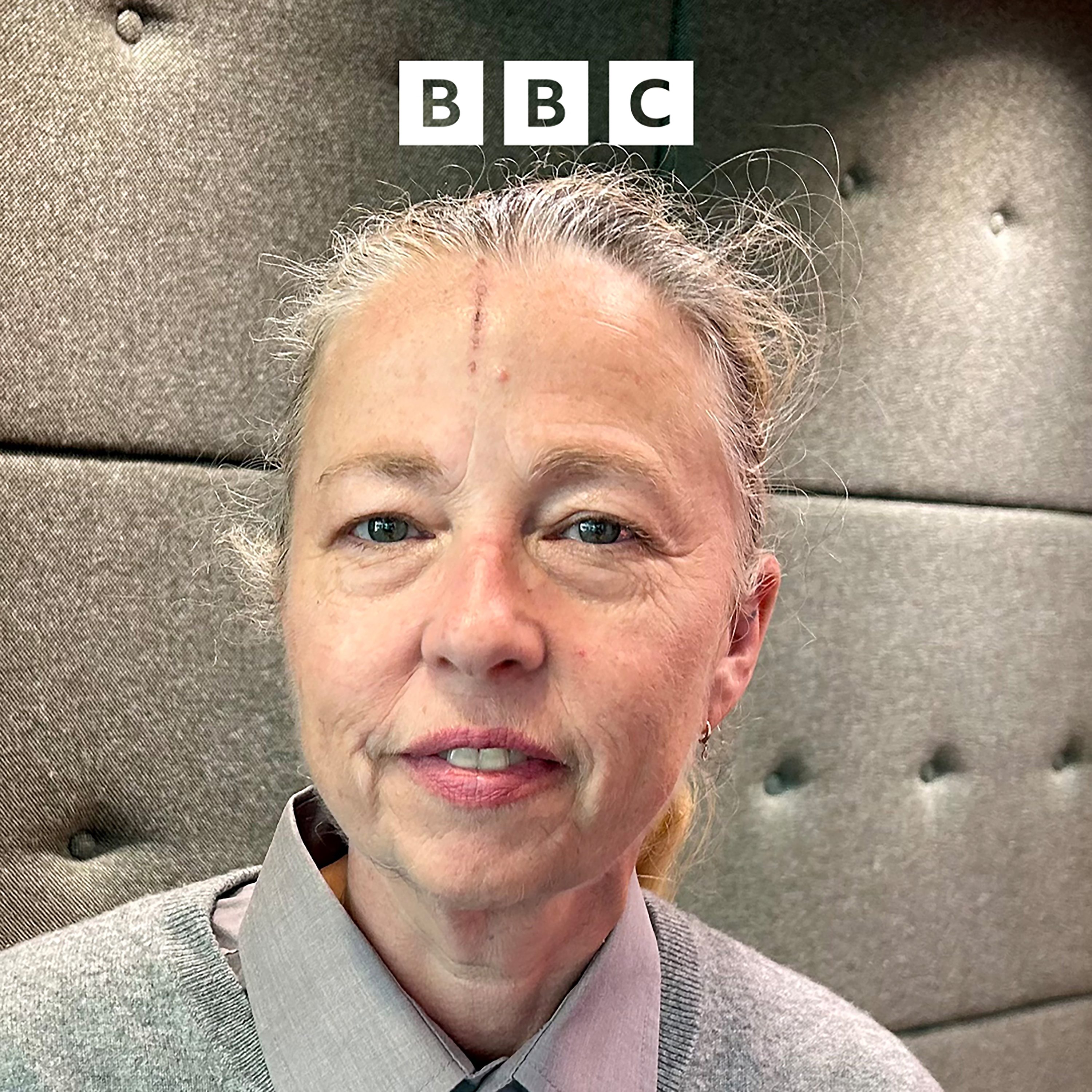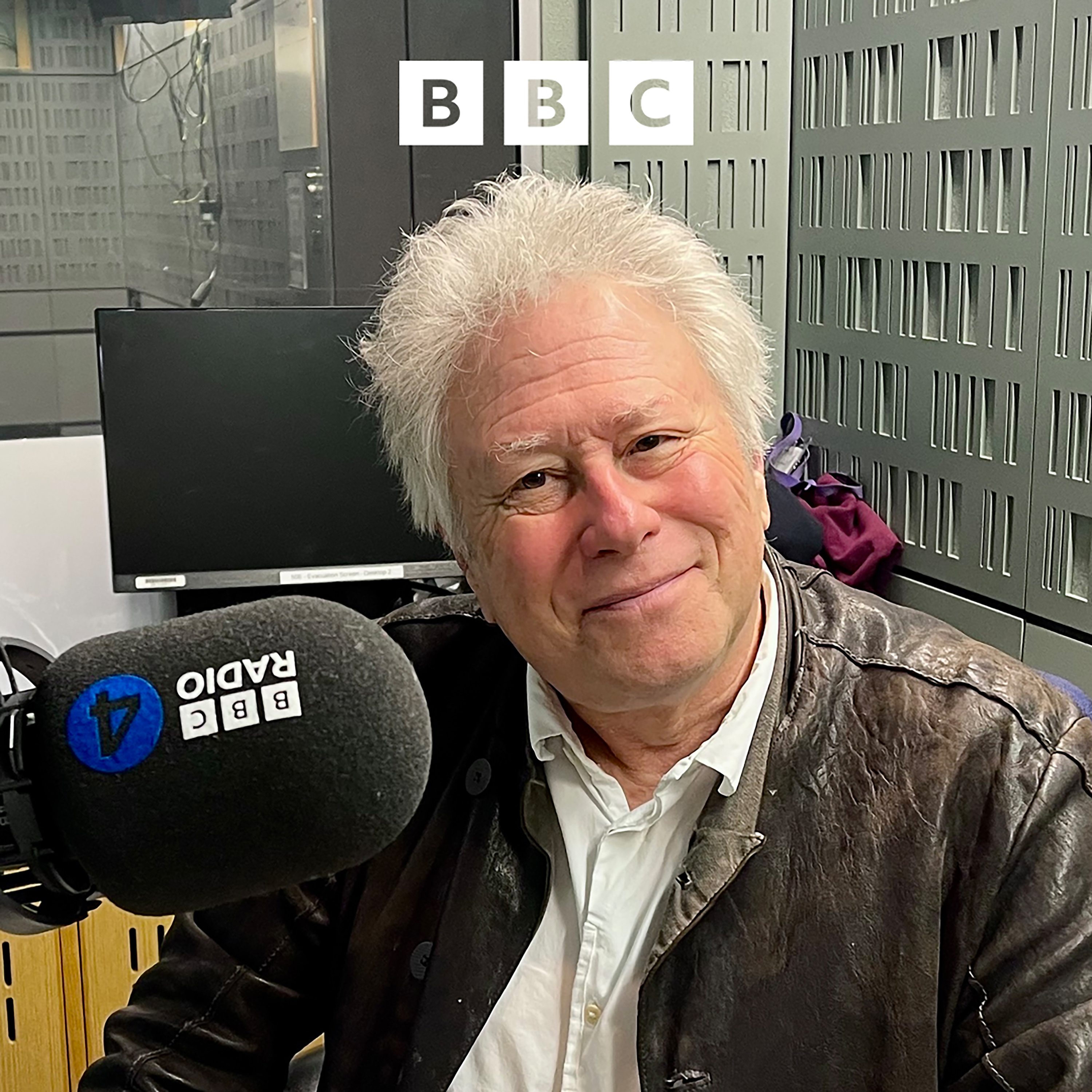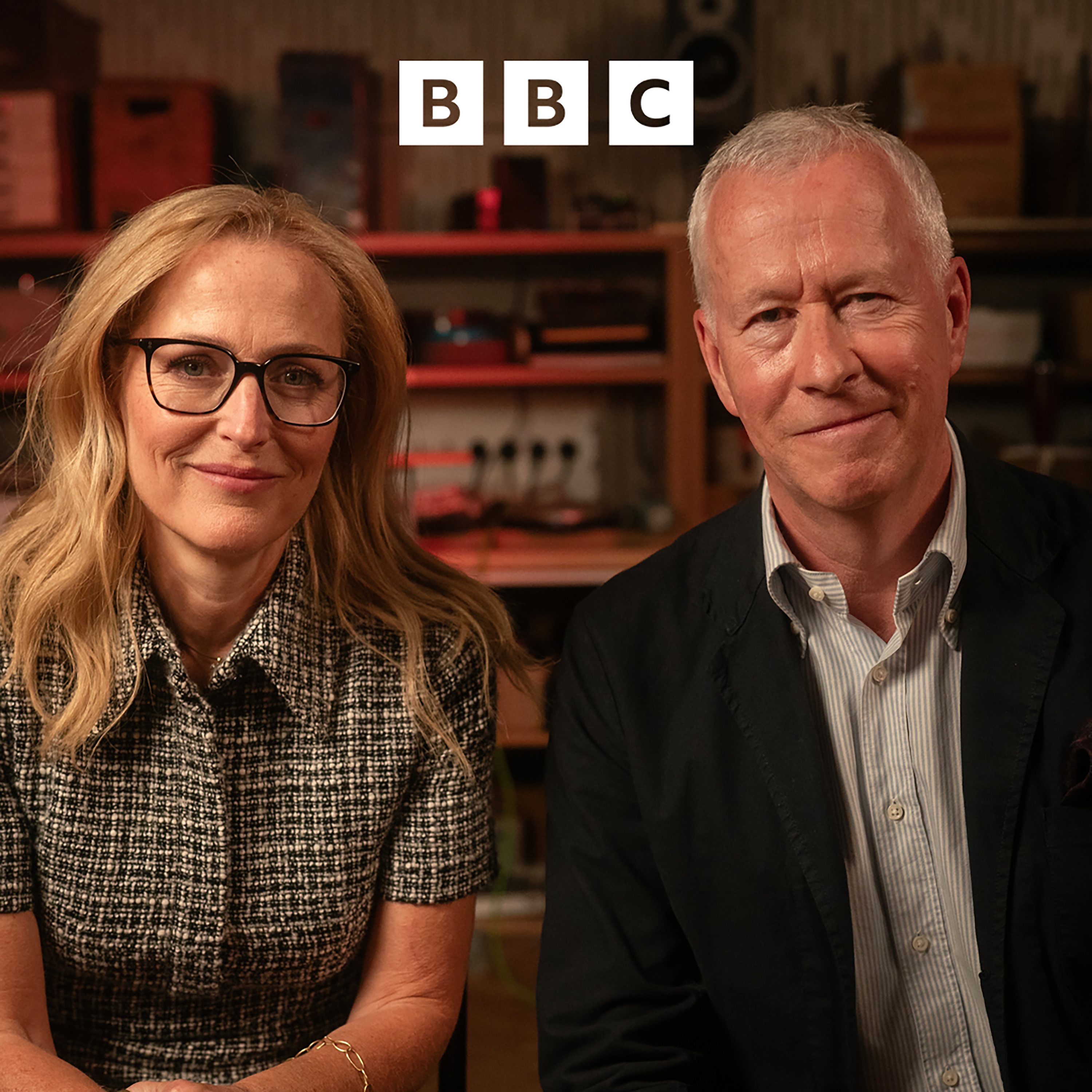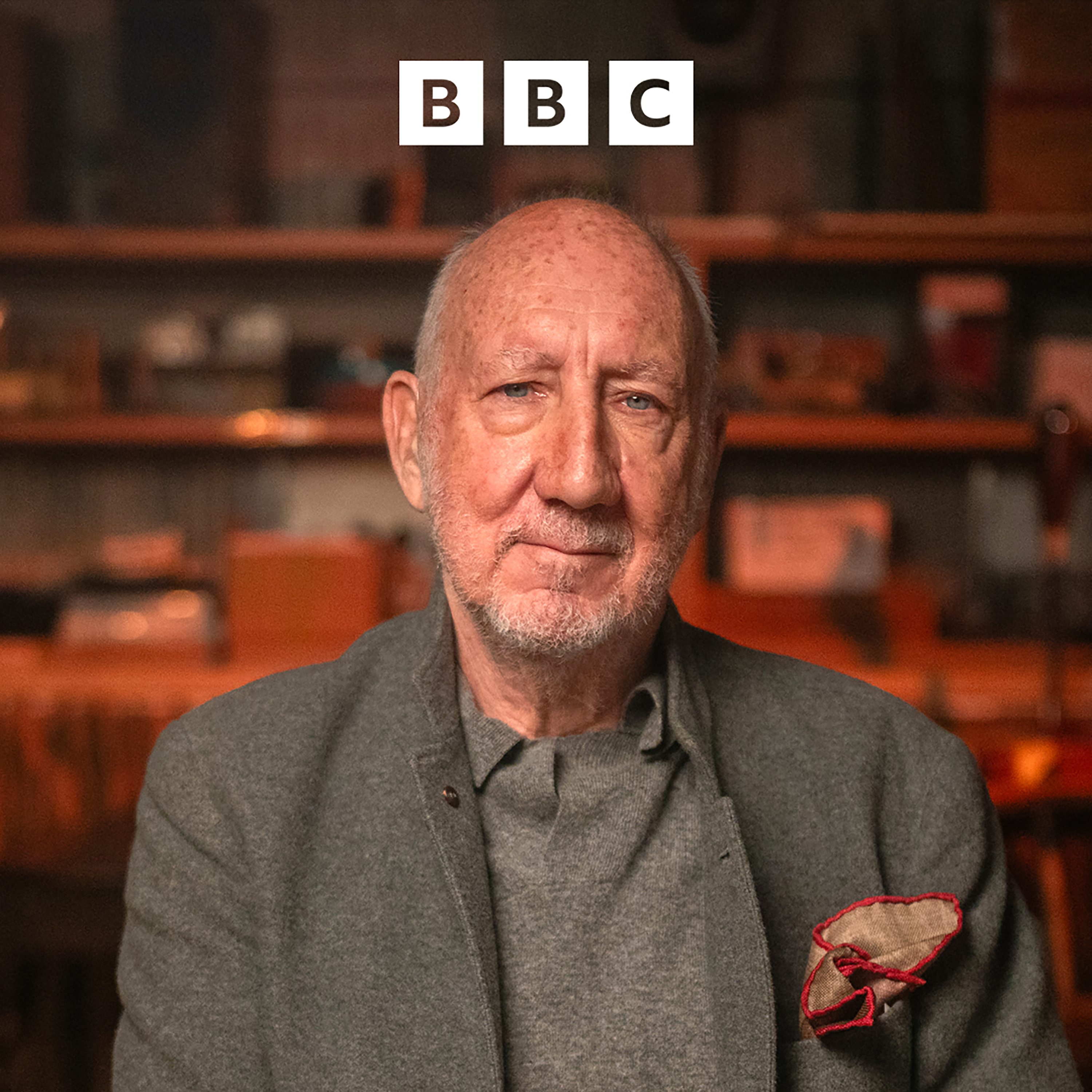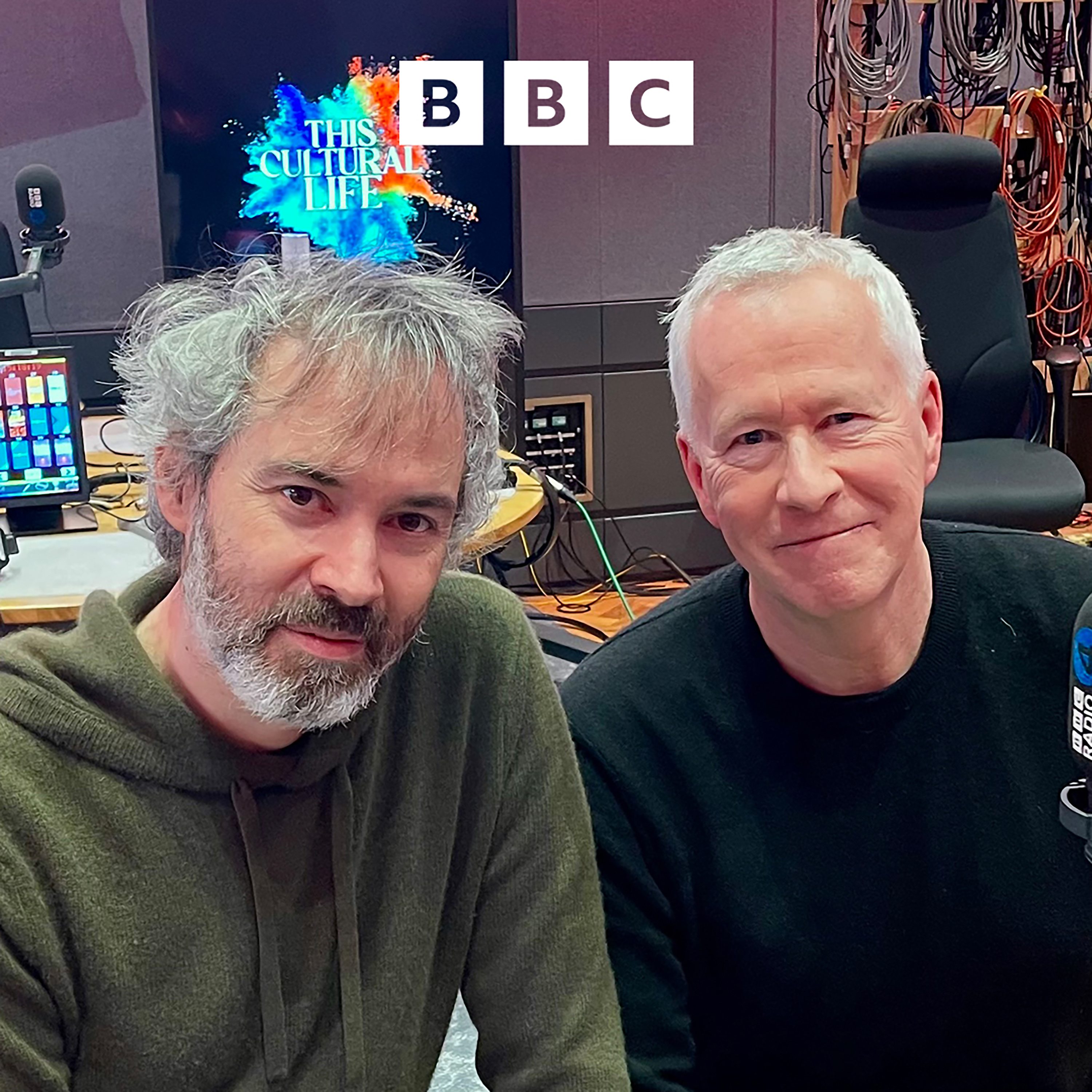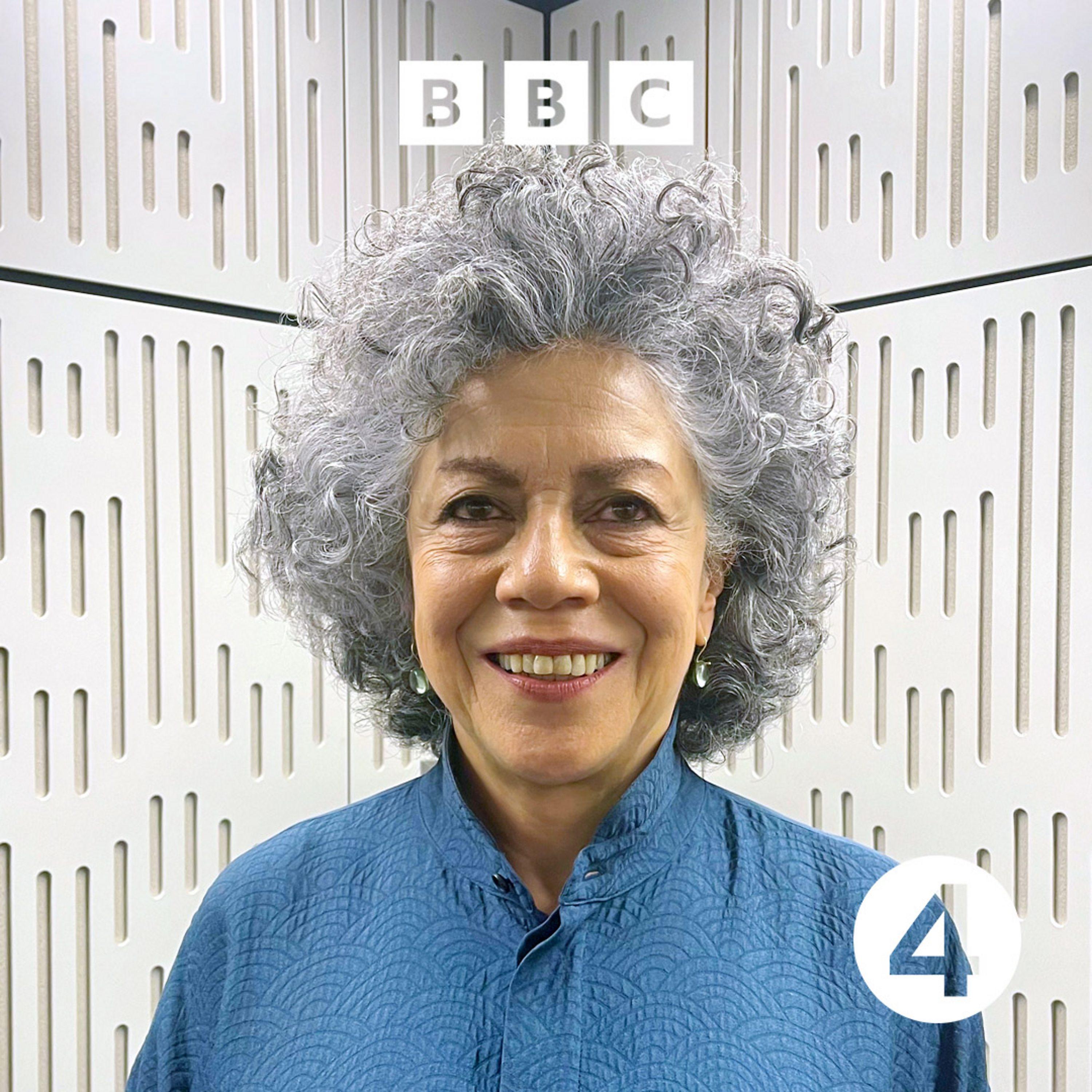Discover This Cultural Life
This Cultural Life

140 Episodes
Reverse
Jennifer Lawrence's breakthrough role in the 2010 drama Winter’s Bone secured her first Academy Award nomination when she was just 20, and she won the Best Actress category two years later for Silver Linings Playbook. Since then, she has become one of the most prolific, critically acclaimed and highest paid actors in Hollywood as the star of The Hunger Games series and three X-Men movies. Other leading roles include American Hustle, Joy and, most recently, the psychological drama Die My Love.Jennifer talks to John Wilson about her childhood on her parents' farm in Kentucky. After being scouted by a modelling agency, she left school as a teenager and moved to New York to start working as a model and actor. She recalls how the film Taxi Driver, starring a young Jodie Foster, made a big impression on her as an aspiring actress and how Jodie Foster later became a role model when she directed Jennifer on the set of The Beaver. She also counts Gena Rowlands' performance in A Woman Under The Influence, written and directed by John Cassavetes, as an important inspiration, as well as working with directors David O Russell and Lynne Ramsay. Producer: Edwina PitmanArchive and film clips used:Uncle Buck, John Hughes, 1989
No Hard Feelings, Gene Stupnitsky, 2023
Taxi Driver, Martin Scorsese, 1976
Winter's Bone, Debra Granik, 2010
The Hunger Games, Gary Ross, 2012
American Hustle, David O Russell, 2013
Veep, Armando Iannucci, 2012
A Woman Under The Influence, John Cassavetes, 1974
Die My Love, Lynne Ramsay, 2025
Rufus Wainwright is a singer-songwriter and composer renowned for his distinctive voice and the theatricality of his performances. Born into a family of folk musicians, his mother was Kate McGarrigle and his father is the songwriter Loudon Wainwright III. Since his debut in 1998, his 11 studio albums have been characterised by their candid autobiographical themes, with songs about addiction, sexuality and fraught family dynamics. He has also worked as a classical composer, with his operas Prima Donna and Hadrian, and a choral piece called Dream Requiem. As a performer he has created musical tributes to Judy Garland, Shakespeare’s Sonnets, the songs of Kurt Weill, and most recently has staged symphonic versions of his much-loved Want albums.Rufus Wainwright tells John Wilson about his earliest musical experiences, singing with his mother and aunties in Montreal, Canada where he spent his early years. He chooses The Wizard Of Oz as one of his formative creative influences and explains why the film’s star, Judy Garland, became such an important musical role model for him. Rufus reveals how hearing Verdi’s Requiem at the age of 13 led to a lifelong love of opera and an aspiration to write classical compositions. He also recalls the impact that seeing La Dolce Vita, director Federico Fellini’s masterpiece about wealth and decadence in 1960s Rome, had on him as a teenager. Producer: Edwina Pitman
Having spent his early years in London, Mark Ronson grew up in Manhattan, began working as a DJ as a teenager and quickly made a name for himself on the New York club scene of the 1990s. He moved into music production and, in 2006, co-wrote and co-produced the Amy Winehouse album Back To Black. The record won five Grammys and Mark Ronson himself scooped the Producer of the Year Award. Since then, he has released five solo albums and worked with some of the most successful names in pop including Lady Gaga, Dua Lipa, Queens Of The Stone Age and Paul McCartney. The winner of ten Grammys and two Brits, he added an Academy Award to his list of accolades in 2018 as co-writer of the song Shallow from the film A Star Is Born. He was also Oscar nominated for his work as executive producer, composer and songwriter for the soundtrack to the Barbie movie. More recently he has written a book called Night People, a memoir about his time as a DJ in 90s New York. Mark Ronson tells John Wilson about the influence of his music-loving parents, who often threw parties at their north London home when he was a child. He talks about the influence of his stepfather Mick Jones, songwriter, guitarist and producer of the 80s rock band Foreigner, who allowed Mark to experiment with equipment in his home studio in New York and encouraged his early interest in production. He remembers how hearing the 1992 track They Reminisce Over You by Pete Rock and CL Smooth led him to pursue a career as a club DJ and become renowned for the diverse range of music he played in clubs - from soul and hip-hop to classic rock - an eclectic approach which later informed his work as a producer. Mark Ronson also recalls first meeting Amy Winehouse and how they wrote and recorded the songs for her Back To Black album. Producer: Edwina Pitman
Dame Rose Tremain is one of Britain’s most prolific and popular writers, having written 17 novels and five collections of short stories over the last 50 years. She was one of only six women on Granta magazine's inaugural 1982 list of the best young British novelists, alongside Martin Amis, Ian McEwan, Salman Rushdie and others. Her fifth novel Restoration was nominated for the Booker Prize in 1989, she won the Whitbread Prize for Music And Silence in 1999, and was awarded the 2008 Orange Prize - the precursor to the Women’s Prize for Fiction - for her novel The Road Home. Having already been made a CBE in 2007, she became Dame Rose Tremain in 2020 for services to writing. Her most recent work is a short story called The Toy Car.Rose Tremain tells John Wilson how her father, a largely unsuccessful playwright called Keith Thomson, inspired her childhood interest in storytelling, although he never encouraged her to write. She recalls how she first started writing fiction to help her cope with loneliness in a household where there was little parental affection.
Rose recalls how it was a teacher at her boarding school who first recognised her ability and encouraged her to apply for an Oxbridge university place, only to be dissuaded by her mother, who sent her to a finishing school in France instead. She credits the novelist Angus Wilson, one of her English Literature tutors at the University Of East Anglia, for giving her the confidence to write her first novel. She also chooses The Diary Of Samuel Pepys as a major inspiration on her 1989 Booker-shortlisted novel Restoration, which was later turned into a Hollywood film starring Robert Downey Jnr. and Meg Ryan.Producer: Edwina Pitman
One of the most revered and prolific British classical musicians, Thomas Adès made his name with his 1995 opera Powder Her Face, written when he was just 24 years old. His orchestral composition Asyla was nominated for the Mercury Prize for album of the year in 1999. Recordings of his opera The Tempest and, more recently, his score for the ballet The Dante Project have both won Grammy Awards. His ten symphonic works, three operas and numerous chamber pieces are performed all round the world. In 2024 Adès was presented with the Royal Philharmonic Society's prestigious Gold Medal, previous recipients of which include Stravinsky, Brahms and Elgar.Thomas Adès talks to John Wilson about the influence of his family, including his art historian mother who is an expert in surrealism. Through her he was introduced to the surrealist artists, the films of Luis Buñuel and met the painter Francis Bacon. His grandmother introduced him to the work of T.S. Eliot as read by Sir Alec Guinness on a cassette recording, and it was some of these poems that he was to eventually set to music for his first ever composition. Adès also recalls getting to the semi-finals of the BBC’s Young Musician of the Year in 1990, a watershed moment for him as it prompted him to pursue music as a composer rather than a pianist. He also cites going regularly to the English National Opera as a formative influence and talks about writing his own operas including Powder Her Face about the Duchess of Argyll, and The Exterminating Angel, based on the film by Luis Buñuel.Producer: Edwina Pitman
Jonathan Anderson was appointed as creative director of the French fashion house Dior in March 2025, becoming one of the world’s most influential designers. As creative director of the luxury label Loewe for 11 years from 2013, he led a rebranding of the Spanish company, and was hailed a critical and commercial success. He’s also run his own label JW Anderson since 2008, and launched collaborative lines with high street brands including Top Shop and Uniqlo. The recipient of many accolades since winning the Emerging Talent prize at the British Fashion Awards in 2012, he was named Designer Of The Year in 2023 and 2024. Jonathan Anderson tells John Wilson about his rural upbringing in Northern Ireland at the height of The Troubles, and the influence of his father, the former Ireland rugby team captain Willie Anderson. He recalls a childhood visit to a textiles factory run by his maternal grandfather that sparked a fascination for printed fabrics. Working as a shop window designer for the luxury label Prada led him to pursue ambitions to become a fashion designer, encouraged by Prada stylist Manuela Pavesi. Jonathan Anderson also reflects on the importance of creative freedom in his industry, claiming that the radical era of fashion, epitomised by designers such as Alexander McQueen and John Galliano, has been replaced by a fear of pushing boundaries due to the risk of social media backlash.Producer: Edwina Pitman
Jackie Kay is one of the best known and most popular Scottish literary figures. A poet and novelist, she served as Makar - the name for Scotland’s poet laureate - for five years from 2016. Since her debut poetry collection The Adoption Papers in 1991, she has published 20 works of fiction and verse for adults and children, and a memoir about meeting her biological parents called Red Dust Road. Jackie Kay was made a CBE for services to literature in 2020.Jackie talks to John Wilson about her childhood in Glasgow as the mixed-race, adopted daughter of a loving couple. From a young age, Jackie was entranced by the parties her parents hosted in their house to raise money for the Communist Party and where they would debate and sing songs. It was her first introduction to performance and theatre. As a teenager, hearing poets such as Tom Leonard and Liz Lochhead recite their own work also had a big impact on her literary aspirations.Growing up in the Glasgow of the 60s and 70s, Jackie had very few black role models and took inspiration from the work of the African American poet Audre Lorde and the American political activist Angela Davis. Jackie also recalls finding her birth parents and how a visit to her birth father's ancestral village in Nigeria finally gave her a sense of dual identity.Producer: Edwina PitmanOther poets who have appeared on This Cultural Life include Michael Rosen, Linton Kwesi Johnson and George The Poet, along with children’s authors including Katherine Rundell and Michael Morpurgo. You can find them in the This Cultural Life archive, which contains over 130 previous episodes.
American artist Kerry James Marshall is one of the world’s most important living painters. Marshall has been making his large-scale, vividly colourful evocations of African-American life for over 40 years. His figurative paintings are rich with symbolism, metaphor and visual references to both social history and his favourite artists from the past. A 1997 painting called Past Times, which evokes works by Seurat and Manet, sold at auction in 2018 for $21m, setting a world record for a work by a living African-American artist. In the autumn of 2025 a retrospective of his paintings opened at London's Royal Academy, his largest exhibition outside of the US.Producer: Edwina Pitman
Swedish-born Alicia Vikander won global acclaim in 2015 for playing Vera Britten in Testament Of Youth, and a humanoid robot in the thriller Ex-Machina. The following year she won an Academy Award for her supporting role with Eddie Redmayne in The Danish Girl, along with a Screen Actors Guild Award and BAFTA and Golden Globe nominations. Since then her diverse range of screen roles have included playing a spy boss in the film Jason Bourne, computer game heroine Lara Croft in Tomb Raider, and Gloria Steinem in the biopic The Glorias. The daughter of acclaimed stage actor Maria Fahl, she tells John Wilson how she first performed on stage at the age of seven in a musical written by Benny and Bjorn of ABBA. She also appeared in Swedish television dramas and films as a child actor. In 2025 Alicia Vikander makes her return to the stage in a new version of Ibsen’s The Lady From The Sea at The Bridge in London, her first theatre role since she was a child. Producer: Edwina Pitman
Classical trumpeter Alison Balsom talks to John Wilson about the most significant influences and experiences that have inspired her career. Having recorded 17 studio albums since 2002, she has been named Gramophone Artist of the Year, won three Classical Brit Awards, along with an OBE for services to music. She has performed with leading conductors and orchestras around the world, including at the Last Night of the Proms.Producer: Edwina Pitman
Comedian, writer, musician and actor Eric Idle talks to John Wilson about his creative influences. A founding member of the Monty Python comedy troupe, he wrote and performed across their four television series, and films including The Life Of Brian and The Meaning Of Life. As a songwriter, he was responsible for much of the Python’s musical comedy, including Always Look On The Bright Side Of Life and The Galaxy Song. He created the comedy series Rutland Weekend Television and the Beatles parody band The Rutles which toured and released albums. In 2005 Eric Idle created the Tony Award winning musical Spamalot, based on the film Monty Python and The Holy Grail which, for over 20 years, has run twice in London’s West End and on Broadway, and has been staged in 14 countries around the world. Producer: Edwina PitmanArchive used:
Morecambe and Wise on stage, BBC archive
One Leg Too Few, Beyond the Fringe, 1960
T.V.P.M., Beyond the Fringe, 1960
Sitting on the Bench, Beyond the Fringe, 1960
Bonzo Dog Doo-Dah Band, Do Not Adjust Your Set, Thames Television, 1967
Monty Python's Flying Circus, Series 1, BBC 1, 1969
The Rutles, Rutland Weekend Television, BBC2, 1975
The Mikado, ENO, Jonathan Miller, 1987
Imagine, BBC1, 2014
Anselm Kiefer is one of the world’s greatest living artists. Born in Germany at the end of the Second World War, much of his work in paintings, sculptures and vast installation pieces, has addressed his country’s history and culture, asking difficult questions about the legacy of fascism and conflict. His paintings, thickly layered and sometimes embellished with straw or molten lead, often depict dark rutted fields or dense forests. Kiefer is renowned for the size of his work, and for his industrial-scale studio complexes in France, where he has lived for over thirty years. Kiefer's works are included in numerous public collections including the Museum of Modern Art and the Solomon R. Guggenheim Museum, New York, Tate Modern, the San Francisco Museum of Modern Art and the National Gallery of Australia. His most recent show at the Royal Academy in London has paired his works with those of one his artistic heroes for an exhibition called Kiefer/Van Gogh. Producer: Edwina Pitman
Children’s writer and academic Katherine Rundell is the multi-million selling author of adventure stories including Rooftoppers, The Wolf Wilder and The Explorer which won the Costa Children’s Book of the Year. Impossible Creatures, the first of a five book series, was named Waterstones Book Of the Year in 2023. Her biography of the 17th century poet John Donne was a non-fiction bestseller and she became the youngest ever winner of the £50,000 Bailey Gifford Prize. At the age of 36, Katherine Rundell was named author of the year at the 2024 British Book Awards. Talking to John Wilson, Katherine Rundell recalls Saturday morning bus journeys from her home in south London to Covent Garden where her father would take part in amateur dance classes. Along the route of the 176 bus he would point out cultural landmarks and helped instil in Katherine a lifelong love for the city. She also explains how her father’s job as a civil servant took her family to live in Zimbabwe when she was a child, an experience that fuelled her imagination and fascination with the natural world. She also remembers the profound loss she felt at the death of her foster sister, and reveals that much of her writing for children has been driven by this tragedy. She chooses the Chronicles Of Narnia series of books, especially The Lion, The Witch and the Wardrobe, by CS Lewis as a huge influence on her own fantasy writing and the poetry of John Donne which she describes as her "greatest literary passion". Katherine also reflects on the importance of encouraging children to read and the current state of children's publishing.
Producer: Edwina Pitman
Composer Steve Reich is one of the most influential musicians of modern times. In the 1960s he helped rewrite the rules of composition, using analogue tape machines to experiment with rhythm, repetition and syncopation. As the godfather of musical minimalism, his influence on Philip Glass, David Bowie, Jonny Greenwood of Radiohead, and many other composers, has been enormous. Countless dance music producers also owe a debt to pieces including It’s Gonna Rain, Drumming, Different Trains and Music for 18 Musicians. His music has been performed in concert halls all around the world, and his many awards include three Grammys, a Pulitzer Prize, the Polar Prize for Music and the Premium Imperiale.
Steve Reich tells John Wilson how, at the age of 14, three very different recordings awoke his interest in music: Stravinsky's The Rite of Spring, Bach's 5th Brandenburg Concerto, and a piece of bebop jazz featuring saxophonist Charlie Parker, trumpeter Miles Davis and drummer Kenny Clarke. Inspired to start a jazz quintet of his own, Reich began to study percussion before enrolling in a music history course at Cornell University. It was here he discovered the music of Pérotin, the 12th century French composer associated with the Notre Dame school of polyphony in Paris. His beautiful sustained harmonies had a profound influence on Reich's own compositions, including Four Organs (1970) and Music for 18 Musicians (1976).Steve Reich also explains the significance of two books on his music; Studies in African Music by A.M.Jones and Music in Bali by Colin McPhee, both of which led to a greater understanding of music from parts of the world where music is passed down aurally rather than through notation.Producer: Edwina Pitman
Additional recording: Laura Pellicer
Painter Jenny Saville, renowned for her large-scale portraits of fleshy, naked women, made her name soon after leaving art school when her graduation exhibition work was bought by collector Charles Saatchi. In 1997, her work was also part of the landmark Royal Academy show Sensation, alongside now iconic pieces by Damien Hirst, Tracey Emin and others. Since then, the main focus of her work - which has been shown in museums and galleries all around the world - has remained the female form. In 2018, a Jenny Saville painting called Propped sold at auction for £9.5m, at the time a world record for a work by a living female artist. A retrospective exhibition of over 50 of her paintings and drawings is being held at the National Portrait Gallery in London.
Jenny Saville tells John Wilson how her childhood interest in painting was nurtured by her uncle, an art teacher, who took her to museums to understand the work of great artists. She says she was hugely inspired by seeing a Lucien Freud exhibition at the Hayward Gallery in London in 1987, and that his large-scale nude portraits influenced her early style. Jenny recalls how a year spent at the University of Cincinnati, as part of her Glasgow School of Art degree course, also had an impact on her understanding of art history from a feminist perspective and refocused the theme of her painting. She describes how she made the monumental paintings of female nude figures, some with liposuction surgery markings on the bodies, which were shown at the Saatchi Gallery and at the Royal Academy Sensation exhibition. Jenny Saville also reflects on the later influence on her work of the Dutch-American abstract painter Willem de Kooning, and of her children with whom she paints at home. Producer: Edwina Pitman
Composer Alan Menken is the winner of more Academy Awards in competitive categories than any other living person. He’s best known for his scores for the animated Disney films including The Little Mermaid, Pocahontas, Aladdin and Beauty and the Beast. His first big hit was the musical Little Shop Of Horrors - one of several he created with lyricist Howard Ashman, his longtime writing partner. Other stage musicals include Sister Act, The Hunchback Of Notre Dame, and Hercules, which recently opened in London's West End. Alan Menken also wrote the scores for Disney films Mirror Mirror, Enchanted and Tangled. As well as eight Academy Awards, he has also won eleven Grammys, seven Golden Globes, two Emmys and a Tony Award.Alan talks to John Wilson about his childhood in New York and the expectations of his parents that he would follow family tradition and become a dentist like his father. A musical talent from a young age, he recalls how seeing Walt Disney’s Fantasia was the start of thinking about the marriage of music with story and images.
Despite initial ambitions to be a singer-songwriter, enrolling in a workshop in New York for musical theatre composers, lyricists, and librettists led by composer Lehmann Engel taught him how to write for the stage. It is also through Engel that he met lyricist and director Howard Ashman with whom he went on to write many of the hit scores credited as the driving force behind the Disney Renaissance of the 1980s and 1990s. Tragically, Howard Ashman was diagnosed with HIV in 1988 and died at the age of 40 in 1991.Producer: Edwina Pitman
Gillian Anderson’s breakthrough television role in the sci-fi series The X Files made her a global star in 1993, and she played cool-headed Agent Dana Scully for nearly a decade. She also starred in period dramas, including an acclaimed film adaptation of Edith Wharton’s novel The House Of Mirth and, on television, in Bleak House, Great Expectations and War and Peace. Her theatre credits include A Doll’s House, A Streetcar Named Desire and All About Eve, all of which saw her nominated for Olivier Awards. Gillian Anderson has won Golden Globe and Emmy Awards for the X Files, and also for The Crown in which she played Prime Minister Margaret Thatcher. More recently, she found a new generation of fans for role as a sex therapist in the series Sex Education. Her latest film is The Salt Path, adapted from the bestselling memoir by Raynor Wynn.Gillian Anderson tells John Wilson how, after being born in Chicago, she moved with her parents to Crouch End, London, when she was five, and then to Michigan at the age of 11. After what she describes as ‘rebellious' teenage years, she studied at Chicago’s DePaul University with drama teacher Ric Murphy, whom she cites as a major influence on her early acting ambitions. After a series of minor stage roles in New York, she auditioned for The X Files and the role of Agent Scully changed her life. She also chooses the actor Meryl Streep as a major inspiration after seeing her with Robert Redford in the 1985 romantic drama film Out Of Africa. Gillian also reveals how the work of the Serbian-born conceptual performance artist Marina Abramović has also been an influential cultural figure for her.Producer: Edwina Pitman
Pete Townshend is the songwriter, guitarist and co-founder of The Who. The band first stormed the pop charts sixty years ago, with teenage anthems including I Can’t Explain, Substitute and My Generation. Broader songwriting ambitions led him to create the rock opera Tommy in 1969, and the concept album Quadrophenia four years later. Both projects were adapted as films, and Quadrophenia has now been staged as a ballet by Sadlers Wells. Throughout the seventies, The Who were regarded as the biggest and loudest live act in the world. They played at Woodstock, at Live Aid, Live 8 and the 2012 Olympic closing ceremony. Despite the deaths of drummer Keith Moon and bassist John Entwhistle, Townshend and singer Roger Daltrey continue to perform as The Who. Pete Townshend talks to John Wilson about the influence of his parents, who were both musicians. His father, the saxophonist Cliff Townshend, played in the popular dance band The Squadronaires, but it was his mother Betty, a singer, who was most supportive of Pete's early musical talent. Seeing Bill Haley and The Comets at Edgware Road Odeon in 1956 was another formative moment that introduced the teenage Townshend to the possibilities of a rock 'n' roll performance. Pete also reveals how his art school tutor Roy Ascot, who was head of the Ground Course at Ealing Art School, shaped his his approach to his band that was to become The Who. He also recounts how reading Labyrinths, a book of short stories by Jorge Luis Borges on the first US Who tour in 1967 opened his imagination and helped him expand his musical storytelling. Producer: Edwina Pitman
Pianist James Rhodes was a relative latecomer to a professional music, and was 30 when he performed his first concert. In 2010 he became the first core classical pianist to be signed to the world’s biggest rock music label, Warner Brothers. He has recorded nine albums, including his most recent one, Mania, which features work by Bach, Chopin Brahms and other composers. He has also presented television documentaries about classical music and written five books, including his international bestselling memoir, Instrumental. But James Rhodes’ adult life story is also one involving mental illness, addiction and suicidal despair in the wake of violent sexual abuse over several years as a small child.Talking to John Wilson, James remembers how hearing a recording of Bach’s Chaconne from his Partita no. 2 transcribed for piano, was a life-changing experience, offering a sense of hope and wonder at a time when he was suffering terrible abuse. He also chooses his secondary school piano teacher Colin Stone as a major inspiration, although his early musical ambitions were thwarted at the age of 18. After some years working in the City, then suffering breakdowns and periods in psychiatric institutions, he returned to music after a decade away from he piano. He also credits a chance meeting with his future manager as a moment that led to him becoming an internationally acclaimed concert pianist.Producer: Edwina PitmanDetails of organisations offering information and support with mental health and self-harm, and for victims of child sexual abuse, are available at: www.bbc.co.uk/actionline
Since the late 1980s, Colombian artist Doris Salcedo has made work in response to conflict and political violence, drawing on the testimonies of victims to create metaphorical sculptures and installations about trauma, loss and survival. She is now recognised as one of the most important living artists, with work shown in museums and galleries around the world, including in the turbine hall of Tate Modern in 2007. Doris Salcedo is the 2025 recipient of the Whitechapel Gallery’s prestigious Art Icon award, in recognition of her ‘profound contribution to the artistic landscape’. She talks to John Wilson about the first time she saw Goya's painting The Third of May 1808, also known as The Executions of the Third of May. The painting depicts the brutal aftermath of the Dos de Mayo Uprising in Madrid, during the Peninsular War, in which Spanish civilians were executed by French soldiers. Salcedo recalls how this painting showed her what a work of art could accomplish. It was seeing this painting that inspired her artistic purpose of trying to reveal the true cost of war in her work.
Salcedo also explains how the poetry of Paul Celan, the French-Romanian poet and Holocaust survivor has been a significant influence on her and her art , and how the testimonies of the Colombian victims of violence have defined her work.Producer: Edwina PitmanArchive used: Paul Celan, Psalm, read by Robert Rietty


